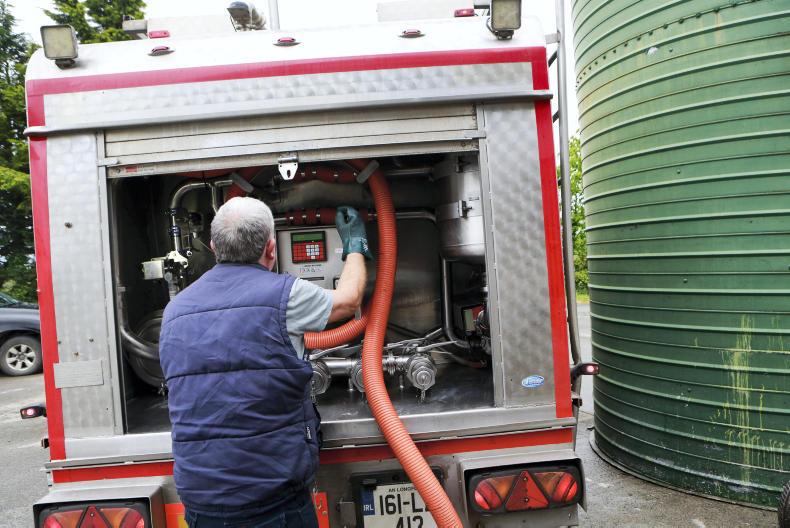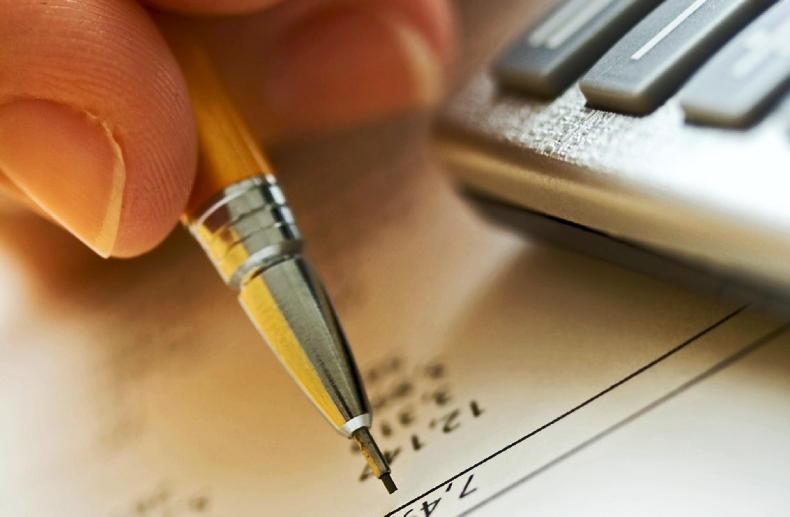As the number of coronavirus cases increases, it is inevitable that some farmers, family members and staff will contract the virus.
However, plans are in place within all co-ops to ensure that milk will be collected and the highest hygiene standards will be adhered to all along the food chain.
Glanbia has issued advice to its suppliers that detail how it will deal with a confirmed case of COVID-19 affecting a farm. Here is what it is planning:
Milk collection and deliveries
In the event that there is a confirmation of a Coronavirus (COVID-19) case affecting a farm, GIanbia Ireland (GI) drivers going to farms or GI sites will take additional preventative measures and any close contact must be minimised.
As part of these preventative measures, farmers are asked to make available for its drivers three key items: soap, paper towels and a bin for disposal.
Biosecurity
Glanbia advises that biosecurity starts with visitor management so limit farm access to essential visitors only.Biosecurity protocols have to be clear to all farm staff and communicated to visitors. Most importantly, ensure direct contact is minimised and hands are washed with soap and water regularly and hand sanitiser is used often. Always follow HSE guidelines.Place a biosecurity sign at the farm entrance.Keep a record of all visitors to the farm.Designate an area where visitors are received away from other members of the household with facilities to wash hands and enough room to keep a safe distance of 2m. This could be the dairy, the farm office or an equipment shed.Wear disposable gloves when touching shared equipment and wash hands thoroughly afterwards.Do not touch your eyes, nose or mouth if your hands are not clean.Dairygold procedure:
If a farmer who supplies or trades with Dairygold contracts or suspects they have contracted Covid-19, they must contact Dairygold, which will in turn inform the relevant haulier, who will notify their driver.
The farmer (or whoever is carrying out milking in their absence) must ensure they wear disposable gloves during milking and clean all surfaces that the driver will come into contact with during milk collection with detergent or sanitizing solution.
These include:
Door handles to dairyOutlet of milk bulk tankCover on top of milk bulk tankControl switchboard of milk bulk tankWashing equipment unitAny other surfaces that the driver may come into contact with
The farmer must provide a bin for the driver to dispose of gloves as he is leaving the farm.
Personnel on the farm are to have strictly no personal contact with the driver once he enters the yard.
Read more
Coronavirus: Teagasc making plans to keep BPS applications moving
Coronavirus: payments, inspections, TB tests, exports to continue – Department
‘It’s important that farmers look out for each other’ - Cullinan
As the number of coronavirus cases increases, it is inevitable that some farmers, family members and staff will contract the virus.
However, plans are in place within all co-ops to ensure that milk will be collected and the highest hygiene standards will be adhered to all along the food chain.
Glanbia has issued advice to its suppliers that detail how it will deal with a confirmed case of COVID-19 affecting a farm. Here is what it is planning:
Milk collection and deliveries
In the event that there is a confirmation of a Coronavirus (COVID-19) case affecting a farm, GIanbia Ireland (GI) drivers going to farms or GI sites will take additional preventative measures and any close contact must be minimised.
As part of these preventative measures, farmers are asked to make available for its drivers three key items: soap, paper towels and a bin for disposal.
Biosecurity
Glanbia advises that biosecurity starts with visitor management so limit farm access to essential visitors only.Biosecurity protocols have to be clear to all farm staff and communicated to visitors. Most importantly, ensure direct contact is minimised and hands are washed with soap and water regularly and hand sanitiser is used often. Always follow HSE guidelines.Place a biosecurity sign at the farm entrance.Keep a record of all visitors to the farm.Designate an area where visitors are received away from other members of the household with facilities to wash hands and enough room to keep a safe distance of 2m. This could be the dairy, the farm office or an equipment shed.Wear disposable gloves when touching shared equipment and wash hands thoroughly afterwards.Do not touch your eyes, nose or mouth if your hands are not clean.Dairygold procedure:
If a farmer who supplies or trades with Dairygold contracts or suspects they have contracted Covid-19, they must contact Dairygold, which will in turn inform the relevant haulier, who will notify their driver.
The farmer (or whoever is carrying out milking in their absence) must ensure they wear disposable gloves during milking and clean all surfaces that the driver will come into contact with during milk collection with detergent or sanitizing solution.
These include:
Door handles to dairyOutlet of milk bulk tankCover on top of milk bulk tankControl switchboard of milk bulk tankWashing equipment unitAny other surfaces that the driver may come into contact with
The farmer must provide a bin for the driver to dispose of gloves as he is leaving the farm.
Personnel on the farm are to have strictly no personal contact with the driver once he enters the yard.
Read more
Coronavirus: Teagasc making plans to keep BPS applications moving
Coronavirus: payments, inspections, TB tests, exports to continue – Department
‘It’s important that farmers look out for each other’ - Cullinan










SHARING OPTIONS